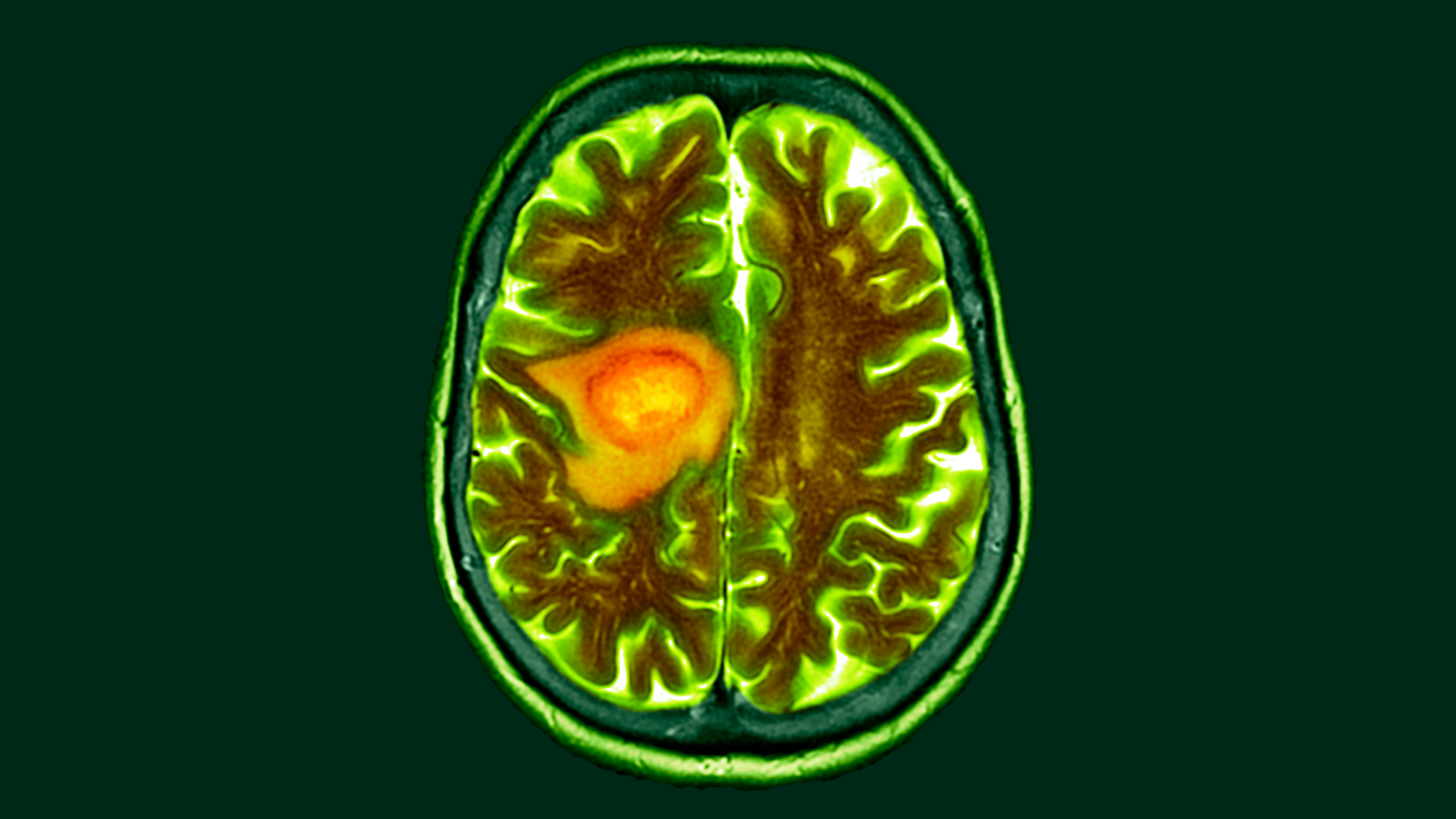Follow us on Google News (click on ☆)
This innovative approach exploits a specific metabolic weakness of cancer cells, as revealed by a recent study that opens promising perspectives for improving the effectiveness of existing therapies.
Researchers discovered that glioblastoma cells profoundly alter their metabolism to support their rampant growth. Unlike healthy cells that use glucose to produce energy and neurotransmitters, tumor cells primarily divert it toward the production of nucleotides, the building blocks of DNA. This metabolic redirection allows them to quickly repair damage caused by chemotherapy and radiotherapy, thus explaining their resistance to conventional treatments.

Scientists have identified how glioblastoma depends on serine, an amino acid essential for its growth.
Credit: DR P. MARAZZI/SCIENCE PHOTO LIBRARY via Getty Images
The study combined analyses of human tissues collected during surgical procedures and experiments on murine models. The latter received a glucose infusion before their surgery, allowing scientists to precisely track the path of molecules in healthy and cancerous cells. This methodology revealed that tumors also capture serine from their immediate environment, an amino acid that amplifies their uncontrolled proliferation.
Faced with this dependency, the team tested a dietary strategy consisting of drastically reducing serine intake in mice carrying human tumors. Deprived of this external resource, cancer cells were forced to reallocate their glucose to serine production, thereby reducing their ability to synthesize the nucleotides needed to repair their DNA. This increased vulnerability allowed chemotherapy and radiotherapy treatments to be more effective, significantly prolonging the animals' survival.
Researchers acknowledge that this therapeutic window could be temporary, as glioblastoma cells are known for their rapid adaptation ability. A clinical trial is being prepared to evaluate this approach in human patients, combining specific diets and standard treatments. This avenue represents a significant advance in understanding cancer's metabolic mechanisms and opens the way to new personalized therapeutic strategies.
Serine and its biological role
Serine is a so-called 'non-essential' amino acid that the body can normally synthesize from other compounds. However, it plays multiple and vital roles in cellular functioning, going far beyond its simple incorporation into proteins.
This molecule actively participates in the production of neurotransmitters like glycine and serotonin, essential for communication between neurons. It also plays a role in the synthesis of phospholipids, major components of cell membranes, and in the production of nucleotides, the basic units of DNA and RNA.
Regarding cancer, the demand for serine increases considerably because tumor cells need it to support their accelerated proliferation. Some cancers even develop a dependency on external serine, preferring to capture it from their environment rather than producing it themselves.
This particularity represents a potential therapeutic vulnerability, as by limiting external serine supply, one can selectively disrupt cancer cell metabolism without too much affecting healthy cells that retain their synthesis capacity.